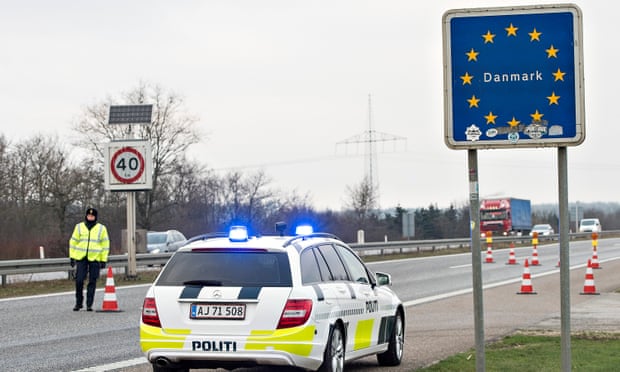Firstly signed by Benelux countries (Belgium, The Netherlands, Luxemburg, West Germany and France) in 1985, now Schengen Area consist of 26 (2015) countries covering almost 3/4 of all European Union's territory. The chronology of members (sorted by date of implementation):
1995: Spain and Portugal join.
1997: Austria and Italy join.
2000: Greece joins.
2001: Denmark, Finland, Sweden, Iceland and Norway join.
2007: Czech Republic, Estonia, Hungary, Latvia,
Lithuania, Malta, Poland, Slovakia and Slovenia join.
2008: Switzerland, Lichtenstein join.
2016: Cyprus, Bulgaria, Romania and Croatia are
expected to join.
Initially the treaty was signed to facilitate the economic development allowing qualified labor force to cross the borders of countries without special permission. The only thing need was the citizenship of any country signed the Schengen agreement. Also Schengen Area was established to provide the common visa policy.
Now in 2015, after the greatest influx of migrants EU ever was exposed to, the gap in Schengen Area was found. Members of the treaty have found that external borders of Area are not sufficiently protected to stop the illegal migration in Europe which is suffering from migrants fleeing from war and crime in Middle East. Refugees ultimate purpose is to enter the Schengen zone. In 2014 the migration route from Syria was:
Syria->Turkey->Greece->Serbia->Hungary
After entering the territory of Schengen Area member migrants scatter around all the Europe.
But Hungary (heading by PM Victor Orban) decided to prevent any migrants from coming to country by building a 3-meter fence. Then EP members blamed hungarian Prime Minister for violation the convention concerning the insurance of safety for those needed. But Orban said that 4-million populated country can't cope with the flow of 1 million migrants. Security forces of Hungary can't ensure that country will not be exposed to crime migrants potentially can do. Also ISIL made a statement that they sent their militants to EU as refugees in order to carry out terrorist attacks on EU countries. The fence near the northern borders of Hungary has changed the route of migrants seeking the asylum. Now it's as described on the picture (left side).
Most of migrants are coming to Germany (nearly 1/2). But it has become the problem of all European countries. The first sign of Schengen crysis was the decision of Germany to re-establish border control in September 2015. After Paris attacks in October 2015 France did it as well. Then this action was done by Austria, Sweden and Denmark. Rumors said that after desperate discussions suggesting to protect borders of Schengen zone The Netherlands started to negotiate with Benelux countries to make a new Schengen-like area.
Terrorism has become one of the biggest issues in Europe since the ISIL has proclaimed itself in 2014. This threat pushes countries forward to undertake the measures to protect the citizens from attacks. One of the solution is to secure national borders. I think that if border control will be in force there would be a higher chance to arrest Salan Adbeskam - one of the suspected in terrorist attack in Paris on October 2015. What heated the atmosphere is that terrorists came with the migrants coming from Middle East.
What can save the Schengen?
After some analysis EU has decided to start negotiations demanding from Turkey to establish the border control with EU and Syria to stop illegal migration and human trafficking. Also EU asked Ankara to accept migrants and to create the facilities to provide the basic standards of living for refugees. In return Brussels announced the financial support for Turkey to meet wants of Europe and also promised visa-free policy for turkish citizens in 2016. This actions seemed to be appropriate in accordance to the desperate situation.
Also investigations should be started to arrest human traffickers. Most of illegal refugees have reached Europe with the help of traffickers paying them more than €2000 per each person making it a huge business for those who involved.
Furthermore, EU should provide an extra financial support for countries protecting EU and Schengen zone' borders. Among them are Italy suffering from african migrants crossing the Mediterranean and of course Greece - the first country of EU and Schengen lying on the route of migration from Middle East. Spending more money for security can help Athens to cope with the influx of migrants. But there aren't enough number of security forces. EU policy does not have the treaty of common military forces or peacekeepers: for allowing ones country's forces to help another country needs to be approved by national parliaments of both. So now Greece being the first european frontier is one-on-one with refugees.
Is it important to save the Schengen Area?
There are a lot of politics expressing their concerns about existence Schengen in such situation. Europe is very slow about re-evaluating its basic agreements. But evolution is what push changes and Schengen needs to be reformed in order to exist. I think that border control is not the biggest problem for europeans facing the possibility disappearance of Schengen. The common visa policy was the initial problem Schengen treaty was aimed to solve. And until the common visa policy exist the Schengen should present. Disruption of such basic value of EU can cause the further actions damaging the Europe as an institution based on elimination barriers and aspiring to create a giant commonwealth.





